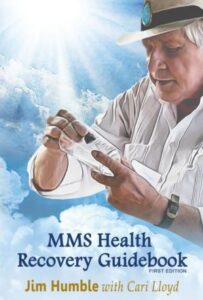117 Employees Sue Texas Hospital Over COVID Vaccine Mandate
Employees at Houston Medical allege the hospital is breaking the law by threatening employees with suspension or termination if they refuse the COVID vaccine. Some lawyers agree, others say the law is less clear. Vaccine Dark Winter 117 Employees Sue Texas Hospital
A Texas hospital was reportedly hit with a lawsuit Friday by 117 employees who claim their employer is turning them into COVID-19 vaccine “guinea pigs.”
 The plaintiffs, employees of Houston Methodist, allege the hospital is breaking the law by requiring shots as a condition of employment, forcing employees to “subject themselves to medical experimentation as a prerequisite to feeding their families.” They are requesting a temporary injunction to prevent the hospital from terminating the employment of those who refuse to get the shot.
The plaintiffs, employees of Houston Methodist, allege the hospital is breaking the law by requiring shots as a condition of employment, forcing employees to “subject themselves to medical experimentation as a prerequisite to feeding their families.” They are requesting a temporary injunction to prevent the hospital from terminating the employment of those who refuse to get the shot.
Houston Methodist is a network that oversees eight hospitals and has more than 26,000 employees. Hospital CEO Dr. Marc Boom sent a letter to employees in April saying they would have to be vaccinated by June 7, or risk suspension and termination of employment, according to The Washington Post.
The complaint, filed in state court, says Houston Methodist’s vaccine mandate violates the Nuremberg Code of 1947, which bans forced medical experiments and mandates voluntary consent. The code was created after World War II in response to the medical atrocities Nazis committed against prisoners in concentration camps.
Attorney Jared Woodfill, who filed the lawsuit on behalf of the 117 hospital staffers, told ABC News Houston Methodist is forcing employees to get the shot to boost the hospital’s profits and this “is a severe and blatant violation of the Nuremberg Code and the public policy of the state of Texas.”
“Methodist Hospital is forcing its employees to be human ‘guinea pigs’ as a condition for continued employment,” the complaint states. The complaint characterizes COVID vaccines as an “experimental COVID-19 mRNA gene modification injection.”
Lead plaintiff Jennifer Bridges said even though she has taken “every vaccine known to man,” she fears the COVID vaccine’s safety is unproven.
Some experts blasted allegations that COVID vaccines are experimental, saying they’ve gone through rigorous testing, have been demonstrated to be overwhelmingly safe and have no capacity to alter DNA.
“This [safety] claim is absurd indeed,” Akiko Iwasaki, an immunologist at Yale University, told The Washington Post. “There were tens of thousands of people who were in the phase 3 clinical trials for the mRNA vaccines, and no safety concerns were found.”
Data released Friday by the Centers for Disease Control and Prevention’s (CDC) Vaccine Adverse Events Reporting System showed 262,521 reports of adverse events following COVID vaccines, including 4,406 deaths and 21,537 serious injuries between Dec. 14, 2020 and May 21, 2021.
Can employers mandate EUA products?
The Equal Employment Opportunity Commission (EEOC) last week updated its guidance for workplace policy for COVID vaccine mandates. Vaccine Dark Winter 117 Employees Sue Texas Hospital
The new rules suggest employers could require their staffers physically entering the workplace to be vaccinated for COVID so long as they make accommodations for an employee’s disability and religious beliefs. However, those employees who don’t get vaccinated must wear a mask, socially distance or change their schedules.
However, according to attorneys Mary Holland and Greg Glaser, because neither Pfizer, Moderna or Johnson & Johnson’s COVID vaccines have received full approval by the U.S. Food and Drug Administration (FDA), they are still Emergency Use Authorization (EUA) products, and any product with this designation must be voluntary.
Under 21 U.S.C. § 360bbb-3, “Authorization for medical products for use in emergencies”:
(ii) Appropriate conditions designed to ensure that individuals to whom the product is administered are informed —
(I) that the Secretary [of Health and Human Services] has authorized the emergency use of the product
(II) of the significant known and potential benefits and risks of such use, and of the extent to which such benefits and risks are unknown; and
(III) of the option to accept or refuse administration of the product, of the consequences, if any, of refusing administration of the product, and of the alternatives to the product that are available and of their benefits and risks.
According to attorney Ray L. Flores II, who litigates these matters in other cases, “individuals must be informed under 21 U.S.C. § 360bbb-3(e)(1)(a)(ii)(III) of the option to accept or refuse administration of the product, of the consequences, if any, of refusing administration of the product, and of the alternatives to the product that are available and of their benefits and risks.”
“This statutory language, ‘to accept or refuse’ an unapproved medical product, frames an individual’s free choice,” Flores said. “While the statutory language references ‘consequences of refusing administration of the product,’ the only logical reading of that phrase regards medical consequences for refusing the experimental product, such as a greater or lesser risk of infection. The notion that an employee may be punished for refusing to be the subject of an experimental test flies in the face of statutory interpretation.”
Under federal preemption doctrine, this federal EUA law trumps state law, according to Holland and Glaser, who said states and municipalities may not mandate EUA products. As the FDA states:
“FDA believes that the terms and conditions of an EUA issued under section 564 preempt state or local law, both legislative requirements and common-law duties, that impose different or additional requirements on the medical product for which the EUA was issued in the context of the emergency declared under section 564 … In an emergency, it is critical that the conditions that are part of the EUA or an order or waiver issued pursuant to section 564A — those that FDA has determined to be necessary or appropriate to protect the public health— be strictly followed, and that no additional conditions be imposed.” Vaccine Dark Winter 117 Employees Sue Texas Hospital
This was also confirmed in August 2020 at a CDC published meeting of the Advisory Committee on Immunization Practices, where the committee’s executive secretary, Dr. Amanda Cohn, stated (@1:14:40):
“I just wanted to add that, just wanted to remind everybody, that under an Emergency Use Authorization, an EUA, vaccines are not allowed to be mandatory. So, early in this vaccination phase, individuals will have to be consented and they won’t be able to be mandated.”
EUA law preventing mandates is so explicit that only one case exists regarding an attempt to mandate an EUA vaccine. In that case, Doe #1 v. Rumsfeld, 2005 U.S. Dist. LEXIS 5573 (D.D.C. Apr. 6, 2005), the court held that the vaccine could not be mandated, even for people in the military.
Hospital leaders said it is not illegal for healthcare institutions to mandate immunizations, The Washington Post reported.
Boom said 99% of the hospital’s 26,000 workers have complied with vaccination requirements so far and “it is unfortunate that the few remaining employees who refuse to get vaccinated and put our patients first are responding in this way.”
When asked about alternative options for employees who did not want to get the COVID vaccine, Houston Methodist told ABC News it offered “religious and medical exemptions, as well as deferrals for pregnant women.”
“As health-care workers, it is our sacred obligation to do whatever we can to protect our patients, who are the most vulnerable in our community,” Boom told The Washington Post. “We proudly stand by our employees and our mission to protect our patients.”
But according to Holland and Glaser, a private party, such as an employer, school or hospital, cannot circumvent the EUA law. For example, this fact sheet approved by the FDA for the Pfizer vaccine states:
“It is your choice to receive or not receive the Pfizer-BioNTech COVID-19 Vaccine. Should you decide not to receive it, it will not change your standard medical care.”
The previously referenced section of the Federal Food, Drug, and Cosmetic Act governing medical products approved for emergency states that the FDA-approved fact sheet must state “the consequences, if any, of refusing administration of the product.”
Nowhere in the fact sheet does it specify that a person may be fired from their employment, denied education, disciplined or otherwise discriminated against for refusal.
What happens once the COVID vaccines are fully licensed?
Holland said while the Supreme Court upheld some vaccine mandates in Jacobson v. Massachusetts, the ruling didn’t grant blanket approval for vaccine mandates. Instead, the court said five criteria had to be met, including that a public health necessity must be established and the vaccine must avoid harm.
Holland, who published a peer-reviewed paper on Hepatitis B mandates in which she discussed the five criteria in detail, said the COVID vaccines do not meet all the criteria.
Children’s Health Defense has prepared: this document for employees, students and others who may face unwanted vaccine mandates. The document, which outlines the legal arguments for why the EUA vaccines can’t be mandated, can be shared with employers and universities.





